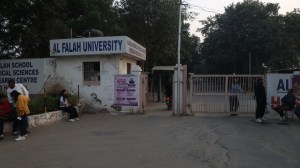Planter146;s Punch
8216;8216;Right now we have three rooms for tourists. I want to build rooms for 20 more people. Once tea tourism takes off in Phaskowa, it...

As Indian tea manufacturers try to fend off competition from China and struggle in an indifferent world market, entrepreneurs in West Bengal and Assam are capitalising on the available infrastructure to tap the novelty-hungry tourist, both the deep-pocket and backpacker variety.
At Addabari, on the Tezpur-Tawang road in northern Assam, Wild Mahseer, a property owned by tea giant McLeod Russel India Ltd, is on the high-end tourist list. 8216;8216;It8217;s a historic property with Victorian architecture and spacious rooms across four individual bungalows. We don8217;t know exactly when it was built, but the Addabari tea estate was set up around 1875; these bungalows would have been constructed around the same time,8217;8217; says Ranjit Borthakur, whose River Journeys 038; Bungalows of India Pvt Ltd has tied up with McLeod Russel to convert it into a heritage property.
8216;8216;Tea tourism is the economy-driver of the future in Assam,8217;8217; says the tour operator. Borthakur8217;s ambitions include creating 1,000 heritage rooms in Assam and the region over the next decade. 8216;8216;I8217;m calling it Naturally Assam. At Wild Mahseer, where the main bungalow has been rechristened the British Assam Heritage Bungalow, our slogan is 8216;Where history is your host8217;.8217;8217;
Across the border, in the modest home of Mohin Tamang at Holder Kothi, within the mountainous folds of the sprawling Makaibari Tea Estate, there8217;s no doubt about who8217;s playing host. Despite8212;or maybe because of8212;chicken families, runny-nosed kids and overladen clothes lines, Tamang earns Rs 700 for every night that French and German tourists spend in his home. 8220;They learn about us, have our food, see our culture,8217;8217; says Tamang. 8216;8216;And we learn about them.8217;8217;
There8217;s enough steam in the tea tourism idea for the Jalpaiguri district magistrate to prepare a concept paper shortlisting 14 gardens as destination possibilities and even envisage golf courses for the dollar and yen crowd.
West Bengal Tourism, the habitual late-mover, is also considering converting the state-owned Hila Tea Estate near Malbazar into 8216;8216;the new and lucrative area of tea tourism8217;8217;, according to joint director Somesh Bhattacharya. The aroma of potential dollars is prompting Manoj Chamaria of Phaskowa Tea Plantations to vie for a
Rs 60-lakh grant from the state government to increase room capacity and build tourist infrastructure on his Dooars garden.
All the more so because there8217;s little investment required by way of manpower. 8216;8216;While the century-old Assam tea bungalows are a new concept in tourism, the bearers and others in the workforce have been trained for generations in running them British-style,8217;8217; points out Ashish Phukan of Jungle Travels.
According to Phukan, the sprawling bungalows, green estates, natural environment, the remoteness from urban centres, and beautiful golf courses and clubs have all become tools to market Assam outside the country, especially since there aren8217;t many five-star hotels in the state.
The happiest person in this context is HP Barooah, a former chief of the Indian Tea Association, whose Barooah 038; Associates has some of the finest bungalows and other heritage properties in Assam. Barooah, in fact, pre-empted the trend way back in 1985, when he renovated his ancestral bungalow, the 1930s vintage Thengal Manor at Jorhat, and converted it into the first heritage tourist bungalow in Assam.
8216;8216;Those days I thought it would be a good idea to make these heritage bungalows self-sustaining by offering them as accommodation to tourists. But within a few years Thengal and my other bungalows have become a big hit,8217;8217; says the pioneer, whose bungalow walls are adorned with MF Husain and other front-rank artists. 8216;8216;I8217;d rate our bungalows above the old palaces of Rajasthan. Those are museum pieces, while here in Assam you can pluck the tea of your choice and even watch tea being manufactured.8217;8217;
His Northeast Heritage Ltd mostly targets Europeans, especially those that have old links with Assam: people whose parents or grandparents worked in the tea plantations in the 19th century. And he does not confine the tourists to just the tea estates; Barooah8217;s managers also drive them to Kaziranga, Sivasagar, the river-island of Majuli and, if required, even to Kohima in Nagaland, an important battleground of WWII.
At Wild Mahseer, with 22 acres of tropical land surrounded by tea gardens as well as a wide variety of trees, plants and birds, Borthakur plans to use the five Cessna aircraft owned by McLeod Russel to fly guests over the surrounding tea-growing region. Country-made boats are also being procured to take visitors on a boat ride on the mighty Brahmaputra.
If in Dibrugarh8212;where Manoj Jalan8217;s Purvi Discovery has transformed his family tea estates into tourist resorts8212;guests are taken horse-riding through the gardens and even parasailing on the Brahmaputra, in Makaibari it8217;s the human element that8217;s in focus.
8216;8216;The tea industry is in such a state now that workers fight to earn an additional Rs 2. Our workers can straight away earn Rs 500 per night from each visitor, who goes back with a positive change in philosophy after staying in the gardens,8217;8217; says Makaibari8217;s Rajah Banerjee, dressed in hunter8217;s khaki and knee-length boots.
While some 25 workers8217; homes in the seven villages dotting the 580-acre estate are being spruced up to host visitors, the company is currently building a restaurant and adding cottages and rooms alongside officials8217; bungalows for tourists willing to spend Rs 1500 to Rs 1800 per night.
And if the budget stretches a bit more, book into Glenburn, located on the road between Darjeeling and Kalimpong. For Rs 10,000 a night 275 for foreigners, you get an undisturbed view of Mount Kanchendzonga on one hand and the lush green downs of the tea garden on the other, to the accompaniment of the gentle gurgle of the Rungeet and Rung Dung rivers. But of course paradise comes at a price.
- 01
- 02
- 03
- 04
- 05






























